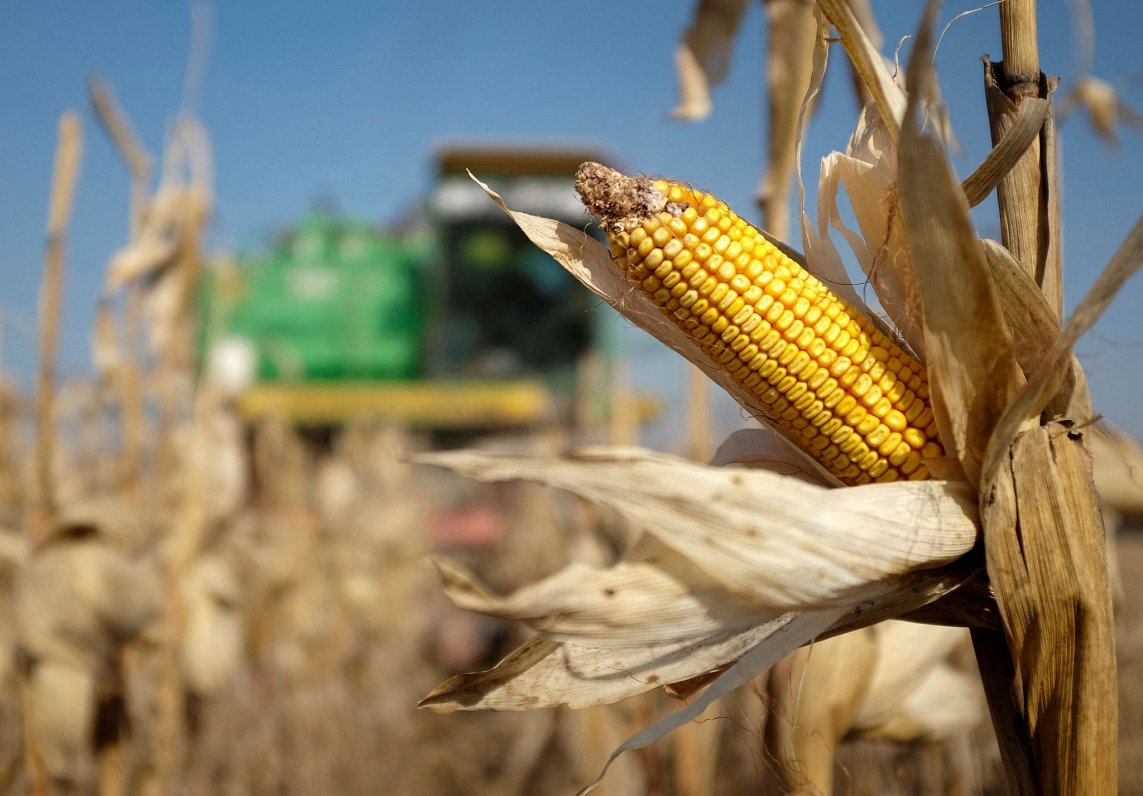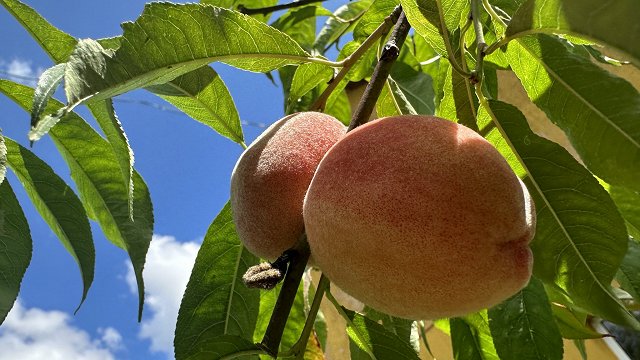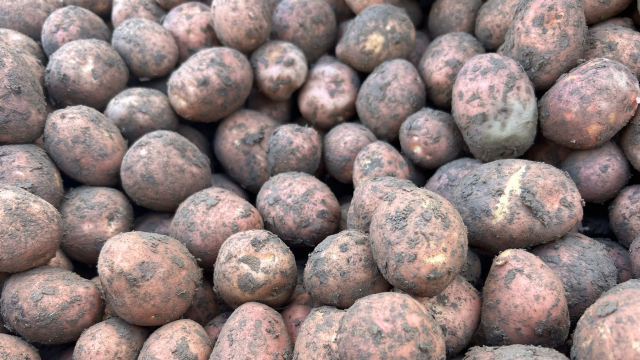This is especially true with regard to the import of corn, and in this field Latvia has become the leading importer from Russia in the entire European Union (EU).
Minister of Agriculture Armands Krauze (Green and Farmers' Union) considers this an unacceptable situation.
The European Union has imposed extensive sanctions against Russia, but they do not apply to the export of agricultural products. Meanwhile, exports of Ukrainian agricultural products are significantly hampered by Russia's blockade of Ukrainian grain exports from Black Sea ports. Statistics show that the aggressor country uses this situation to its advantage, for example, currently Russian wheat accounts for 24% of world wheat exports, compared to 16% market share before the invasion of Ukraine.

At the beginning of October, the State Security Service (VDD) confirmed to the LTV program De Facto that increases in grain and pea imports from Russia had attracted its attention, but refrained from further comments.
The Central Statistical Bureau (CSB) revealed to the program that four Latvian companies imported corn from Russia this year, while five imported peas and six rapeseed. However, the names of specific companies are not disclosed.
De Facto announced that, when looking at the data of the largest fodder wholesalers, it can be seen that the trends in foreign trade statistics especially coincide with the increase in turnover for one trader - SIA "Avrora Baltic". Before the war, its turnover was 53 million euros, last year it was already nearly 180 million. Until the beginning of the war, it was still a subsidiary of the Russian company "Sentjabr" in Latvia. "Sentjabr" is registered in the Lipetsk region, approximately 400 kilometers from the Ukrainian border.
In the first 8 months of this year, EU member states imported 31% more wheat and corn from Russia than in the same period last year – an increase of 739,000 tonnes.
Currently, the biggest Russian grain importers are Latvia, Italy and Greece, (followed by Lithuania and Estonia).
If before the start of the full-scale war in Ukraine, only about 11% of Latvia's grain imports came from Russia and was about 100,000 tonnes, then this year already in the first eight months the relevant amount has reached 266 thousand tons and 34% of the total grain imports of Latvia.
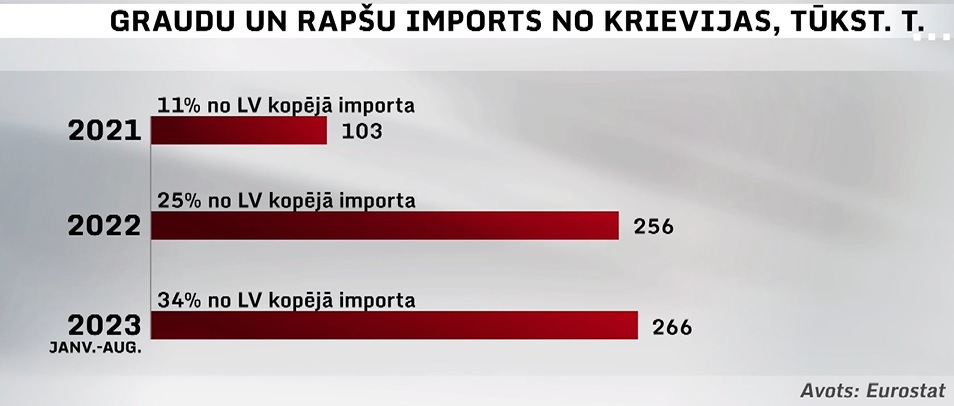
In the first seven months of this year, 82% of the corn imported to Latvia came from Russia. This year, the import of corn from Russia has increased by 63% compared to 2022.
Moreover, taking into account the experience of previous years, it can be predicted that the largest volumes of grain will still arrive at the end of the year, which is traditionally the most active time for the grain trade.
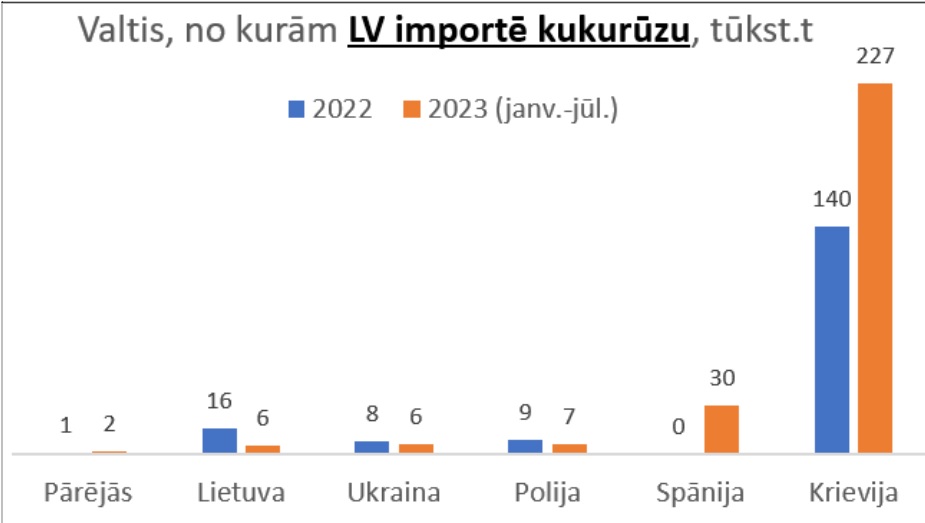
Just as suddenly, Latvia has become an important taker of Russian dried peas - last year the volume in terms of price increased four times over and in terms of weight - two and a half times. In 2021, 53,000 tonnes of peas were imported from Russia, last year - 132,000 tonnes.
"If we look at what is now imported into Latvia across the border - these numbers have increased significantly," admits Agriculture Minister Krauze.
"In our opinion, this is not correct, because there is no hunger in Europe and we do not need Russian production here. If we are talking about the world, where there is hunger, then, of course, Latvia cannot and will never slow down the transit if it goes to African countries or other places where food products are really needed."
Krauze has discussed the situation with his Lithuanian and Estonian colleagues, and also informed the EU Council about the situation.
The Minister of Agriculture promised that the ministry will prepare information on which Latvian companies have begun to import grain from Russia more intensively, taking advantage of the fact that it is cheaper there, although it is not clear whether this grain was grown in the occupied territories or even stolen from Ukraine. It will also be investigated whether these grains remain in Latvia or are exported further to other EU countries.
